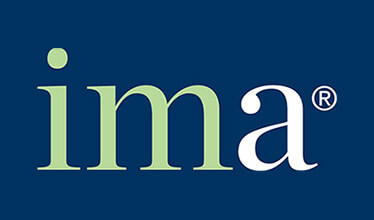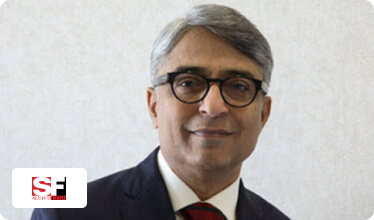An organization wanting to ensure the well-being and growth of its employees invests in robust mentorship programs.
Mentoring has helped me in my life and career, and it’s important to pay it forward. In the late 1990s/early 2000s, I worked as the CFO of a multinational corporation based in Mumbai, India. I had direct access to the board of directors. I had an informal tête-à-tête with some of the directors before each board meeting to hear their views on agenda items, especially the financial and strategic matters.
This process gave me substantial knowledge of business strategy and leadership skills. Unfortunately, while more than 75% of professionals would like to have a mentor, only 37% have one, according to a survey cited by Harvard Business Review.
I had open discussions with a director who guided me through difficult and complex business situations. I started meeting this individual beyond our pre-board-meeting routine. He explained to me the concept of mentoring and made me realize our informal chats were progressing into formal mentoring. I still go to him to get words of wisdom on leadership and advice on complex business issues. Since then, I’ve added other mentors, which isn’t unusual—it’s natural to have different mentors at different stages of your career.
Trust, respect, and commitment are three integral, interdependent pillars of a successful mentoring relationship, which is a two-way process based on shared interests, areas of focus, challenges, and objectives.
Trust: Mentees should have faith that their mentor has their best interests in mind when providing guidance. Mentors should believe that their mentee has the utmost interest in skills development and is genuinely open to guidance, treating the information shared by the mentee with careful consideration and confidentiality.
Respect: The natural outcome of any relationship based on trust is a feeling of deep admiration for each other’s knowledge, experience, abilities, qualities, and achievements. For a mentoring relationship to drive success, it’s critical that respect be mutual.
Commitment: Where there is trust and respect, commitment comes naturally. When the mentor and mentee commit to making the most of each other’s time and talent, their bond becomes stronger, bolstering the mentee’s professional development.
Good mentorship is particularly important in today’s challenging environment, where volatility, uncertainty, complexity, and ambiguity are increasing. During the pandemic, employees at all levels are filled with anxiety about their job security and personal welfare. Under such difficult circumstances, an organization wanting to ensure the well-being of its employees should invest in robust mentorship programs to guide the most vulnerable members of the workforce and help to boost their morale.
Types of mentorship
In its most traditional format, mentorship refers to a senior leader guiding a junior person. The mentor-mentee bond takes the form of a supportive teacher-student relationship. Mentors share knowledge and experience that they’ve garnered by virtue of their seniority and wisdom to enrich a mentee’s professional journey.
Peer mentoring is between professionals of equal or comparable seniority—a mentor who has lived through a specific experience or has a particular skill set and a mentee who is new to that experience or aspires to acquire that skill set. Both parties can learn from each other.
Reverse mentoring is where the typical mentor-mentee age dynamic is reversed. More junior professionals can mentor more senior leaders on a variety of topics with which the younger generation is more familiar. Some examples include technology, digital tools, and diversity and inclusion.
E-mentoring refers to virtual mentoring sessions wherein the interaction between the mentor and the mentee happens over a digital platform, which has seen a surge during the COVID-19 pandemic.
Finding the right fit
Choosing the right mentor is a difficult, time-consuming task, but finding someone who’s a good fit for your needs and goals can have a huge impact on your personal and professional development.
Mentors can be within or outside your organization. Your alma mater’s alumni network and professional associations such as IMA® can be great places to find a mentor or offer to become one.
Good mentors look for a mentee in whom they see commitment, energy, trust, and a willingness and ability to learn new things.
Mentors get a sense of pride and satisfaction watching their mentees grow and realize their full potential, whereas for the mentees, there is an opportunity to learn firsthand from an experienced professional and enhance their knowledge.
Stages of mentoring
The initial phase of mentoring involves each half of the pair doing some background research on the other, getting to know one another, and setting expectations. The hope is to establish good chemistry for working together and forming a long-lasting professional relationship. Mentees must have clear ideas of what they want to gain from this mentorship and discuss them in a transparent manner.
The next stage of mentoring is to create a plan and set goals based on specific, measurable, achievable, realistic, and time-bound (SMART) principles. The success of a good mentoring relationship depends on the specificity of the goals that are set. Mentees need to have buy-in and dedication to achieve these goals.
Once the plan is created by mutual consent, the mentee needs to start working and making progress toward the goals. Mentors should keep track of mentees’ efforts without too much interference. Empowering mentees to work independently is a key to success. Both the mentor and mentee should be flexible and open-minded enough to consider each other’s input.
Mentorship programs are an invaluable tool to provide a boost to employees’ and members’ career advancement and emotional well-being, strengthen the talent pool, and encourage a collaborative workplace culture.
Maintaining a good rapport and relationship with a mentor can be a lifelong asset for a mentee’s career development. Sometimes, a professional mentor-mentee relationship can even turn into a lasting friendship.
This article was originally published on the SF Magazine website.











